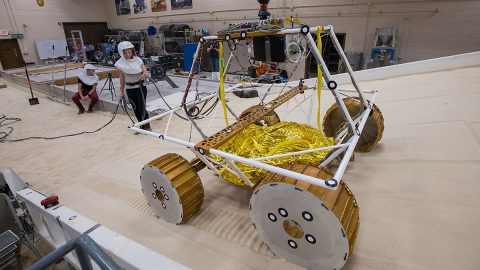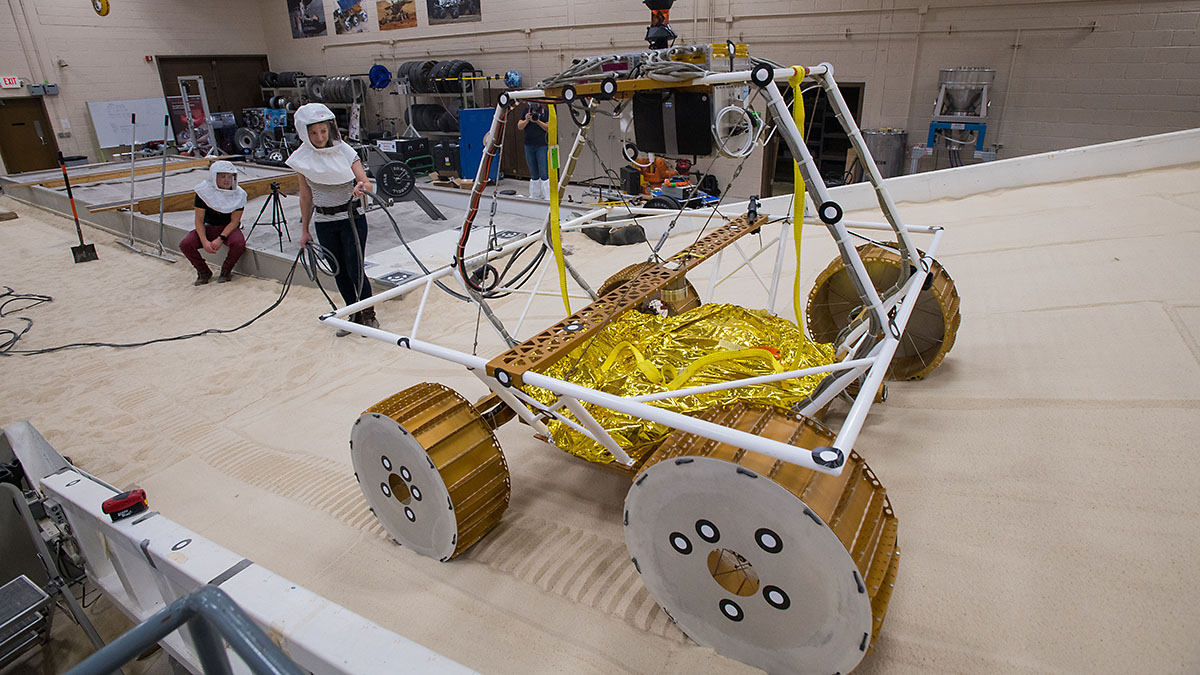 Cleveland, OH – An engineering model of the Volatiles Investigating Polar Exploration Rover, or VIPER, is tested in the Simulated Lunar Operations Laboratory at NASA’s Glenn Research Center in Cleveland, Ohio.
Cleveland, OH – An engineering model of the Volatiles Investigating Polar Exploration Rover, or VIPER, is tested in the Simulated Lunar Operations Laboratory at NASA’s Glenn Research Center in Cleveland, Ohio.
About the size of a golf cart, VIPER is a mobile robot that will roam around the Moon’s South Pole looking for water ice in the region and for the first time ever, actually sample the water ice at the same pole where the first woman and next man will land in 2024 under the Artemis program.

The large, adjustable soil bin contains lunar simulant and allows engineers to mimic the Moon’s terrain.
Engineers from NASA’s Johnson Space Center in Houston Texas, where the rover was designed and built, joined the Glenn team to complete the tests.
Test data will be used to evaluate the traction of the vehicle and wheels, determine the power requirements for a variety of maneuvers and compare methods of traversing steep slopes. Respirators are worn by researchers to protect against the airborne silica that is present during testing.
VIPER is a collaboration within and beyond the agency. NASA’s?Ames?Research Center in Silicon Valley?is managing the project, leading the mission’s science, systems engineering, real-time rover surface operations and software. The rover’s instruments are provided by Ames, NASA’s Kennedy?Space Center in Florida and commercial partner, Honeybee Robotics?in?California.
The?spacecraft,?lander and launch vehicle that will deliver VIPER to the surface of the?Moon?will be provided through NASA’s Commercial Lunar Payload Services?program, delivering science and technology payloads to and near the Moon.??



